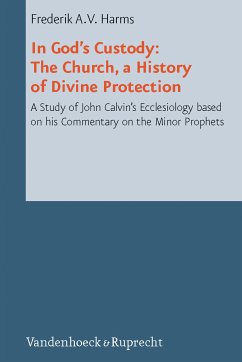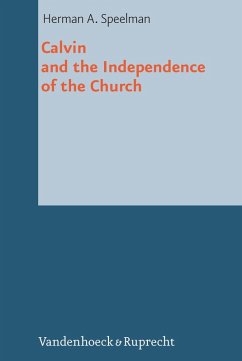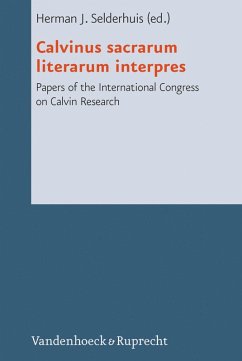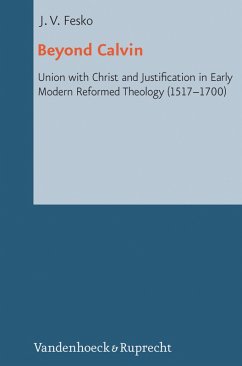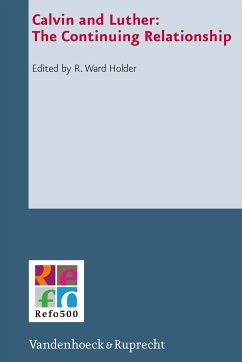
The Beginning of a Spirit-filled Church (eBook, PDF)
A Study of the Implications of the Pneumatology for the Ecclesiology in John Calvin's Commentary on the Acts of the Apostles

PAYBACK Punkte
0 °P sammeln!
How does John Calvin view the church? And how does the pivotal event of Pentecost influence his view on the church? In his commentary on the Acts of the Apostles Calvin shows how Pentecost and the preaching of the Gospel gives rise to the church. For Calvin the new and peculiar aspect of Pentecost is articulated by the phrases »I will pour out« and »on all flesh« (Acts 2:17). The first phrase ("I will pour out") leads to a discussion of the Holy Spirit who leads the church and the believers by the Word and his secret guidance. All gifts flow from the Holy Spirit. Therefore, the study focus...
How does John Calvin view the church? And how does the pivotal event of Pentecost influence his view on the church? In his commentary on the Acts of the Apostles Calvin shows how Pentecost and the preaching of the Gospel gives rise to the church. For Calvin the new and peculiar aspect of Pentecost is articulated by the phrases »I will pour out« and »on all flesh« (Acts 2:17). The first phrase ("I will pour out") leads to a discussion of the Holy Spirit who leads the church and the believers by the Word and his secret guidance. All gifts flow from the Holy Spirit. Therefore, the study focuses on Calvin's view on the gifts of the Holy Spirit and on their use in church. The author argues that the gifts of the Spirit are the basis of Calvin's interpretation of Christian church. The second phrase ("on all flesh") leads to a discussion of the inclusion of the Gentiles in the church. The author treats different ecclesiologic topics of importance: He analyses the most important aspects of church that Calvin identifies in the book of Acts. His reflections are aiming at a convincing theological appreciation of the sacraments, in particular of the sacrament of baptism. By addressing Calvin's thoughts as elements of his historical context and including contemporary impulses to these issues, the author is able to present conclusive arguments for his main claim: Calvin's commentary on Acts enriches and qualifies Calvin's own systematic ecclesiology as found in his main doctrinal work, the Institutes.
Dieser Download kann aus rechtlichen Gründen nur mit Rechnungsadresse in A, B, BG, CY, CZ, D, DK, EW, E, FIN, F, GR, H, IRL, I, LT, L, LR, M, NL, PL, P, R, S, SLO, SK ausgeliefert werden.




